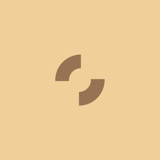
Design2use
Project Period: January 2025 – December 2026
Project Status: In Progress Pool: TRACE Pool 2
Lead: Aalborg University
Design for multiple use of textile products in public and private partnerships (Design2.Use) aims to develop and test new circular textile solutions in the furniture industry focused on design for multiple use.
Design2.Use is made possible by systemic collaborations and partnerships between Aalborg University (Department of Planning and Department of Architecture, Design and Media Technology), Copenhagen Business School, two Danish municipalities who represent the use and recovery, a private company (Højer Møbler) who represents the design and product as well as the private company CarpetCare who provides various circular services on furniture.
The Danish municipalities purchased furniture and fixtures for over 1 billion DKR in 2017, and the public sector in general faces major challenges in transitioning from a linear use of furniture which is replaced frequently to one in which furniture is reused and in general used longer.
Extending the lifetime of the furniture can be done through various circular strategies, which besides a reduced use of new resources and reduced CO2-eq emissions also holds the potential for job creation and new capability building through cocreation and knowledge exchange in the value chain. Design2.Use aims to provide a method for co-creation of solutions for longevity through co-designed solutions for secondary and tertiary use
Design2.Use takes a systemic perspective across the furniture value chain (design and production, systems and services, and recovery), where new business models and solutions are made possible by interactions between the product level, the business level (for purchase called supplier level), and the systemic level.
The project enables new solutions to increase longevity which contributes substantially to the Danish climate strategy as well as the EU plans for circular economy. Design2.Use further advances the capacity and capabilities of businesses and industry supporting their ability to become frontrunners in circular design strategies on both extended use for second users and recovered use for third users.
This further supports their ability to meet the upcoming requirements from the proposed Ecodesign for Sustainable Products Regulation (ESPR) by the EU.
Participating Partners: Aalborg University, Hjørring Municipality, Hjørring Municipality, Randers Municipality, CarpetCare, Copenhagen Business School and Højer Møbler A/S.
Project Leader
Mette Alberg Mosgaard
Mail: Mette@plan.aau.dk
Other Common Projects




